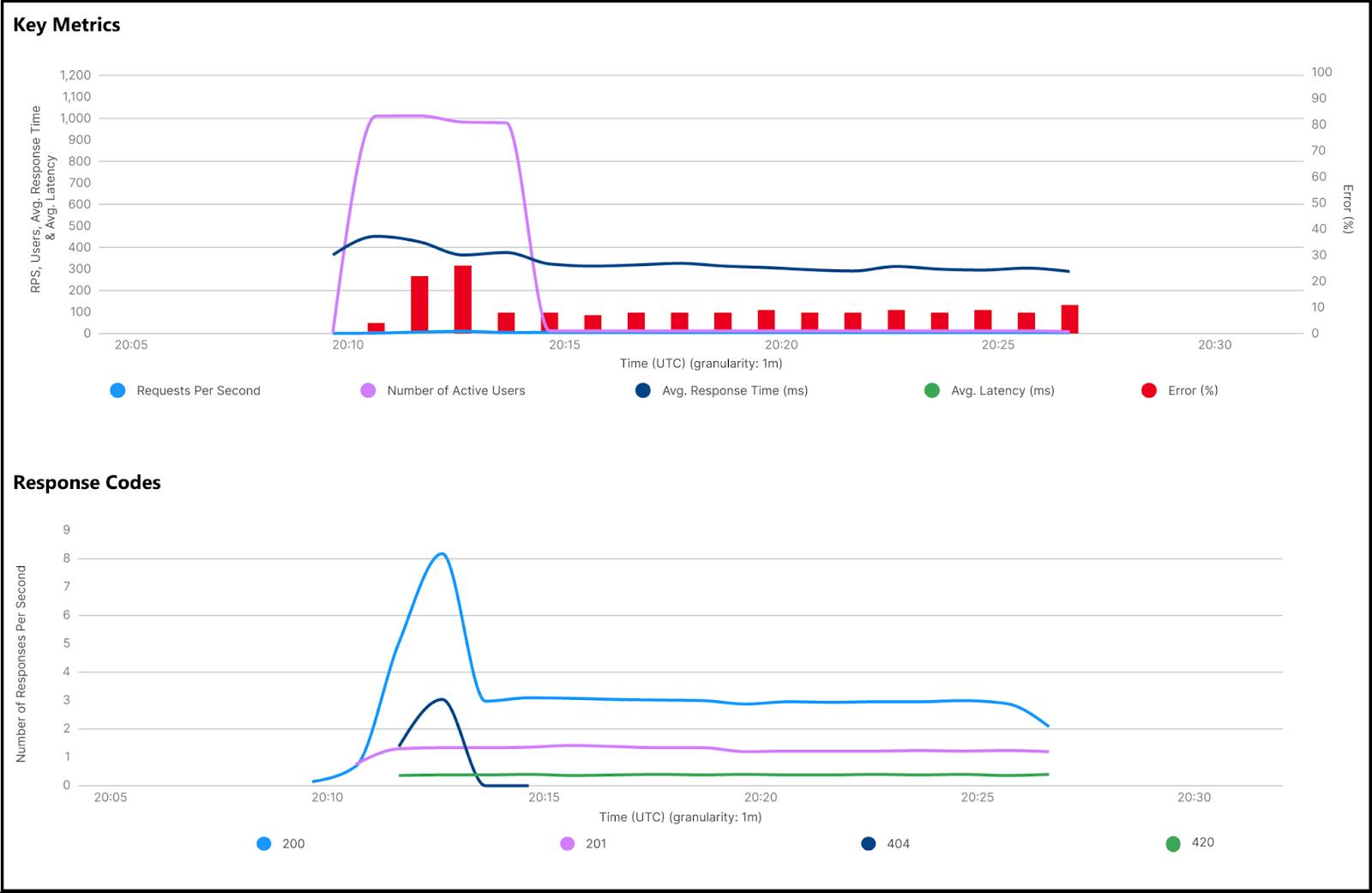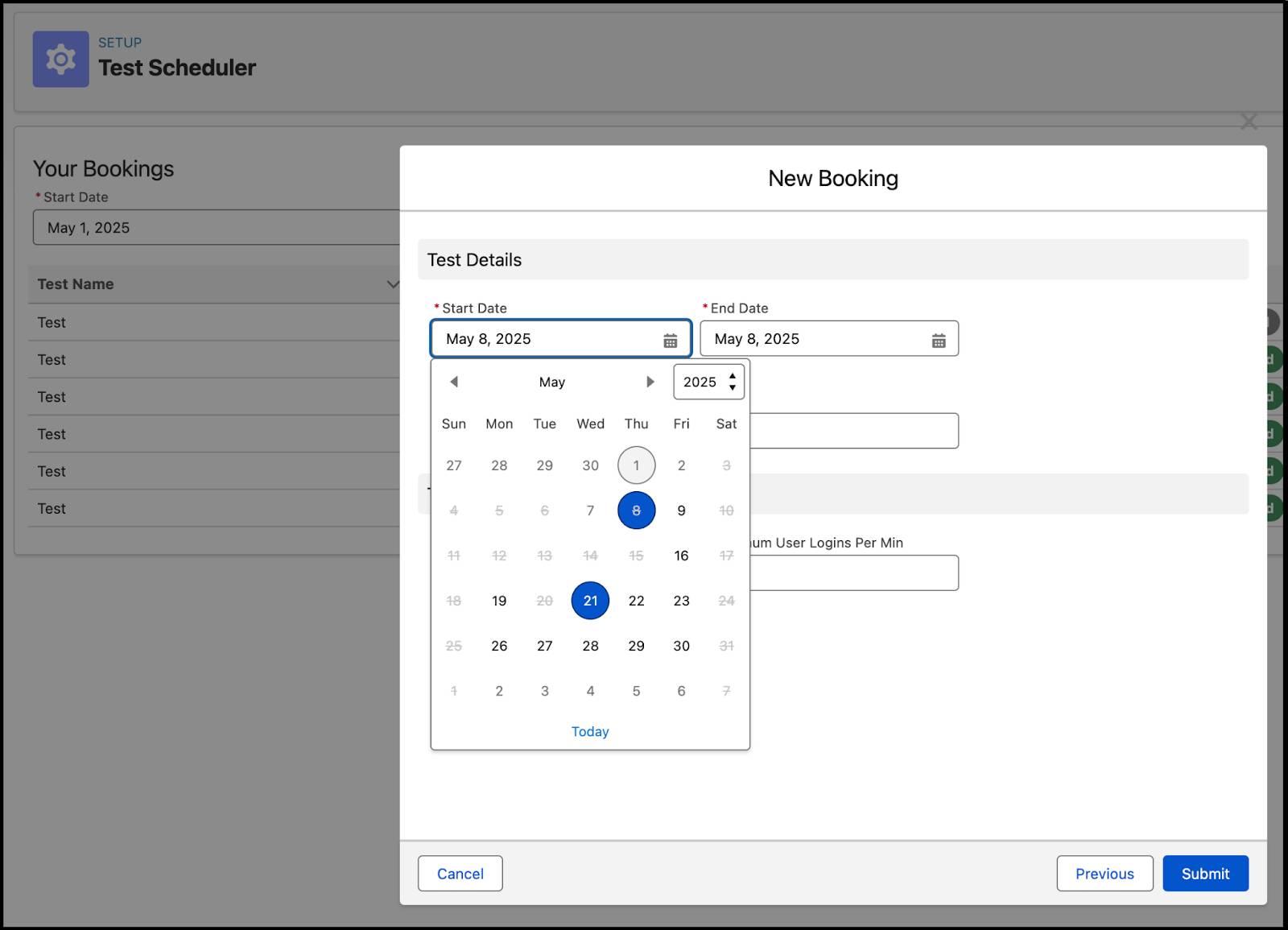Run Your Test
Learning Objectives
After completing this unit, you’ll be able to:
- Book the actual test using the New Booking feature.
- Explain the importance of following a structured execution process.
- Run tests using Salesforce Scale Test.
Next, learn about the execution of scale tests using Salesforce Scale Test. Executing your tests is crucial for obtaining accurate and meaningful results. Also, releases that happen in sandboxes can affect your scale testing activities.

Explore Why Structured Execution Is Important
- Consistency: A structured execution process ensures that your tests are consistent and reliable, making it easier to compare results across different tests.
- Efficiency: By following a structured process, you can execute your tests more efficiently, reducing the time and effort required.
- Accuracy: A structured process helps you avoid common pitfalls and ensures that your tests are accurate and meaningful.

Steps to Execute Scale Tests
Testing Step |
Description |
|---|---|
Book the Actual Test |
|
Run the Test |
Run the test scenarios in your test environment, monitoring the performance and identifying any issues. |
Document Results |
|
Extend Your Testing |
|
Use Case: Testing a B2B Commerce Application
You execute a full-scale test of a B2B commerce application with 25,000 concurrent users across Experience Cloud, API integrations, and Einstein Bots. You use the New Booking flow to schedule your test, which automatically scales core Salesforce infrastructure to production-like conditions. During the run, you capture metrics for response time, chatbot latency, and CPU time across integrated flows. You monitor all test scenarios using live metrics dashboards provided by Scale Test.
Well done. Now you have the completed test and all of its metrics available for monitoring and analysis. Continue on to find out why this is so important and the many next steps you can take to perfect your implementation.